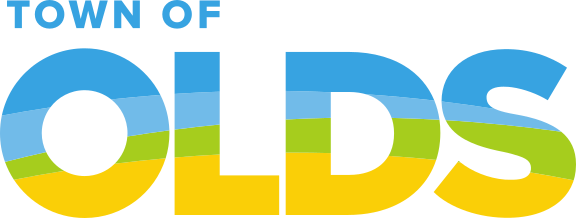What Is Naturalization?
Naturalization means changing how we care for certain green spaces. Instead of managing high-maintenance, or awkward shrub beds in less visible areas, we will allow these areas to return to a more natural state. This approach supports long-term sustainability of our Parks efforts in terms of cost and time and reduces upkeep and manhours.
Why Are We Doing This?
Naturalization helps us:
It also supports Council’s focus on environmental responsibility and smart financial decisions. We are not stepping back from beautifying the town. We are stepping towards smarter stewardship.
What Can Residents Expect?
What Is A “Noxious Weed”?
According to the Province of Alberta’s website include “noxious or prohibited noxious weeds…present significant economic, social or ecological risks” and are provincially regulated. Prohibited noxious weeds pose a serious threat as they spread rapidly and are highly competitive. Alberta’s Weed Control Act states that prohibited noxious weeds must be destroyed and noxious weeds must be controlled.
To see a full list of noxious weeds, please visit the Government of Alberta’s website: www.alberta.ca/provincially-regulated-weeds
Will This Make The Town Look Messy or Uncared For?
Naturalized areas will not be left to “go wild.” In fact:
-
Where possible, new trees or features like benches will enhance the space, not detract from it. This is a long-term plan, and progress will be slow but steady.
Naturalized areas may look “messy” at first, but over time, they grow into intentional, low-maintenance green zones that still look cared for.
What Can I Expect Year-To-Year?
Greenspace Naturalization
Year One – Getting Started
Years Two and Three – Growth and Adaptation
Year Four – A Resilient Landscape
Shrub Bed Naturalization
Year One – Transition Phase
Years Two and Three – Establishment
Year Four – Functional and Low-Maintenance
Ongoing Adjustments: Some areas may need to be reseeded or lightly mowed to control weeds. We’ll keep an eye on how they develop and adapt as needed.
Will This Affect Property Values Or The Way Our Neighbourhoods Look?
We are only naturalizing select low-use or hard-to-maintain areas. These include slopes, out-of-the-way corners, or spaces with difficult mowing conditions. In some cases, (and dependent on funding and grants), we even have a long-term plan of improving these areas with trees or benches over time.
By making better use of our resources, we can actually improve maintenance levels in high-visibility and high-use areas—leading to better overall care, not less
What About Weeds—Will They Spread To Nearby Yards?
We are taking this seriously. All naturalized areas will be monitored, and noxious weeds will be addressed. In some areas, we may mow buffer zones or reseed as needed.
We’ll also be sharing information to help residents understand how naturalized areas work and the long-term benefits they bring to neighbourhoods.
How Are We Managing Safety?
We are taking care to:
We are working closely with the Olds Fire Department and Parks team to ensure the naturalized areas are safe and well-managed.
Is This Just A Way Of Doing Less Maintenance?
Naturalization is not about doing less; it’s about doing things differently, and more sustainably.
It takes real planning, preparation, and seasonal care to get it right. While naturalized areas don’t require the same level of mulching or pruning, they are actively monitored, seeded, and maintained.
Naturalization is a long-term investment. In the first season or two, you might see bare soil, patchy growth, or areas that look unfinished. That’s part of the process. It takes time for grasses and native plants to take root, fill in, and establish a healthy, self-sustaining ground cover.
How Will We Know If It’s Working?
We will track:
These results will help us decide whether to expand or adjust the approach in the future.
What Do You Need From The Community?
We’re asking for three things: cooperation, feedback, and patience.
We’re inviting residents to share in the care and success of these spaces and celebrate the pollinators - knowing the payoff is both environmental and financial.
Naturalization is one way we’re working toward a greener, more sustainable community. It’s about using resources wisely, protecting the environment, and making decisions that serve the long-term good.
If you’re concerned about an area or have feedback to share, please submit a Report a Problem.



